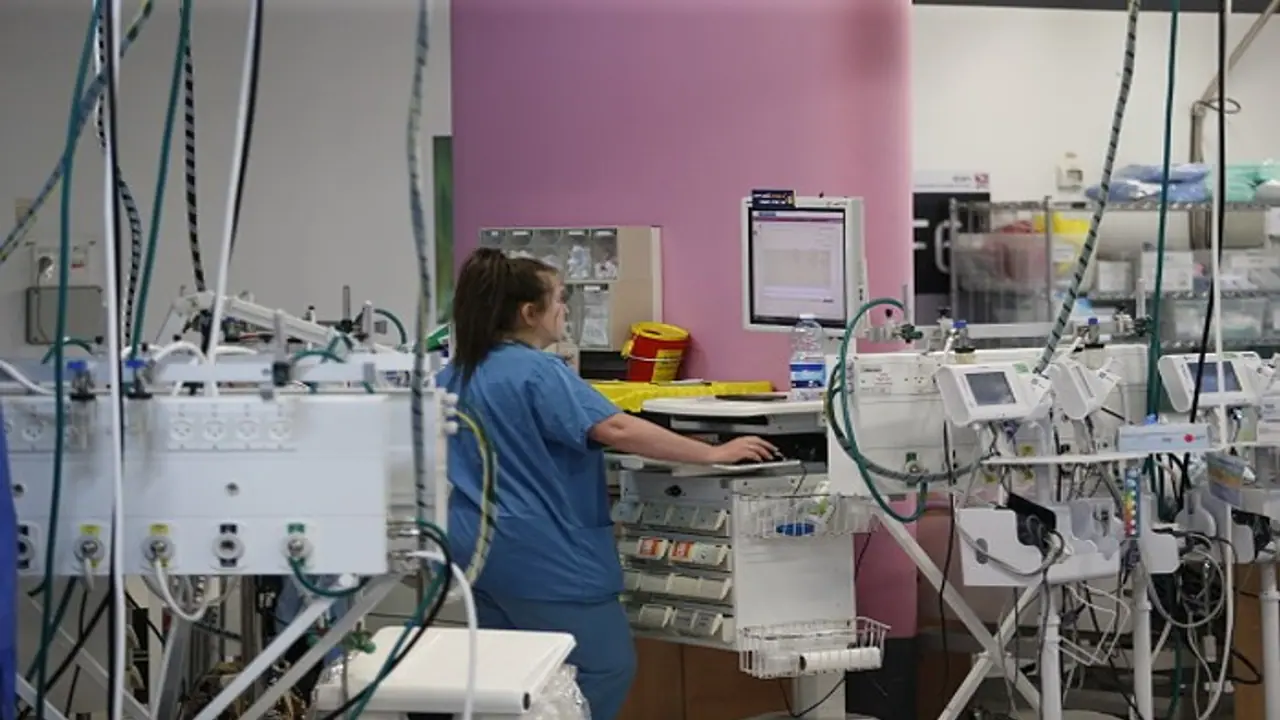In a groundbreaking shift in patient care, UK hospitals are preparing to trial an artificial intelligence "death calculator" that can predict the approximate life expectancy of patients undergoing routine ECG tests.

In a groundbreaking shift in patient care, UK hospitals are preparing to trial an artificial intelligence "death calculator" that can predict the approximate life expectancy of patients undergoing routine ECG tests. This advanced technology, AI-ECG risk estimation, or AIRE, is poised to reveal hidden health risks that even the most skilled cardiologists might miss, using just a few minutes of heart monitoring.
According to DailyMail, designed to analyze electrocardiogram (ECG) readings—which capture the heart's electrical activity—AIRE has demonstrated impressive accuracy. In studies, it identified patients' 10-year mortality risks with up to 78% reliability. The program will be piloted at two London NHS trusts starting mid-next year, and researchers hope it could be widely available across NHS hospitals within five years.
Dr. Arunashis Sau, a cardiology registrar at Imperial College Healthcare NHS Trust, describes AIRE’s vision as aiming not to replace doctors, but to extend their capabilities. “The goal here is to try and use the ECG as a way to identify people that are at higher risk, who will then maybe benefit from other tests that could tell us more about what’s going on," he explained. "ECG is a very common and very cheap test, but that could then be used to guide more detailed testing that could then change how we manage patients and potentially reduce the risk of anything bad happening.”
Rather than performing conventional ECG diagnostics, AIRE uses deep analysis to detect the slightest electrical and genetic cues from the heart’s structure, forewarning of potential heart rhythm issues and heart failure long before symptoms emerge. By pinpointing patients at higher risk, it enables clinicians to act preemptively, tailoring more intensive, individualized interventions.
Dr. Sau said, “One key distinction is that the goal here was to do something that was superhuman. So not replace or speed up something that a doctor could do, but to do something that a doctor cannot do from looking at heart tracing. What we found is that AI could pick up things to do with the patient’s heart structure and function, and even things as deep as genetic information were being picked up.”
In the first trial, a few hundred patients will participate under the care of Chelsea and Westminster Hospital NHS Foundation Trust alongside Imperial College. The data, coupled with further research, will guide expansion across the NHS.
Research in Lancet Digital Health published today underscores AIRE’s potential in predicting major cardiovascular issues. Using a dataset of 1.16 million ECGs from over 189,000 patients, the technology forecasted future heart failure in nearly 80% of cases and detected atherosclerotic cardiovascular disease with 70% accuracy, potentially reshaping early intervention strategies.
Dr. Fu Siong Ng, a consultant cardiologist at Imperial College Healthcare NHS Trust, sees a future where AI will flag health risks and guide treatment. “The vision is that every patient having an ECG in hospital will be put through the model. Clinicians will then be informed, not just about what the diagnosis is, but a prediction of a whole range of health risks, which means that we can then intervene early and prevent disease."
As heart attack and stroke cases surge among younger patients, largely driven by lifestyle issues like obesity, high blood pressure, and diabetes, the potential of AI-driven early detection becomes especially urgent.
